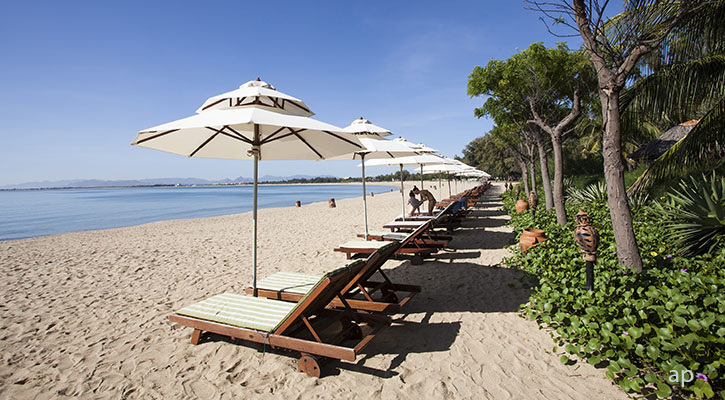
My mate Steve at financial services consultancy The Lang Cat knows the score. A recent returnee from an early Summer getaway, he tweeted a few weeks back that flying was the single worst customer journey available. I heartily agree. And that’s in the best of times.
Even when it goes well, flying is stressful and physically exhausting. On paper, the process is bizarre: suspend 300-plus human beings in the air at high speed in a sealed metal tube, and attempt to feed and water them for however long it takes for the iron bird to plant its rubbery talons firmly back on the runway of another airport. Again, that’s a good day.
At its worst, flying is a veritable assault on your comfort, dignity, and wallet. Of course, the rip-offs begin before you get to the airport (see my previous column about anti-nudges and airline websites). Then, on the day itself there is the inevitable tension over what time you should leave. Naturally, sod’s law dictates the early birds among us will be met with delays on arrival, emphasising how insane it was to leave that much of a buffer to drop bags and go shopping in W H Smith (no relation of mine) for things you could've bought last week at half the price.
And all that assumes you even make it off the tarmac.
God forbid you go through the stress of a cancellation, like the thousands of passengers who, in the past two weeks, have been told they’ll either a) get less time on holiday or b) no holiday at all. Those people are rightly entitled to compensation (more on that below), but swerving that issue for now, I’ll get to my point.
Emotional Baggage
This year has already afforded plenty of opportunities to re-examine ESG. Chief among them was war in Ukraine, which near enough immediately prompted commentators to ask whether it was now an ethical imperative to let ESG funds invest in arms stocks for the sake of national security and broader foreign policy objectives.
As I’ve said, I think that way of looking at it lends power to the arms of greenwashers who neither need nor deserve your money. That said, it’s still interesting to consider ESG from new angles.
If we’d have chatted in January about airlines’ primary ESG liability, I’m sure we would’ve agreed on the major one: the environment, and, specifically, carbon emissions.
Though the rise of carbon reporting is undoubtedly a good thing (it still takes me somewhat aback when I see headline emissions at the top of airline companies financial results), transparency is very different from change.
Around 2.4% of global carbon emissions come from the world of aviation. The commercial aviation world itself acknowledges that its contributions to the problem have been rising: specifically, a 32% rise in emissions between 2013 and 2018. The pandemic very much put all that on a pause, but, as we explored this week, the strain on balance sheets means investors very much appear to be more worried by profits than they are penguins.
Profits and penguins aside, though. What about people?
One angle of looking at airlines’ ESG liability is their behaviour towards the human beings who use their services. In the last month there have been some truly shocking examples of unethical behaviour.
Last month, a wheelchair user was abandoned on a Ryanair flight at Manchester Airport for more than two hours. Daryl Tavernor, who has muscular atrophy, was finally helped off his plane at 4:40am, but then faced an abandoned border control area, which he only managed to clear after, erm, calling the police. Yes, you read that right. One wonders at what point his airline no longer thought he was its problem.
The police have stepped in on other occasions too. Last month, cops at Manchester airport were tasked with informing dozens of TUI passengers that they wouldn’t be going on holiday. For the record, they appear to have done rather well at conveying the message, but that's hardly the point. It wasn’t their job.
So, after failing in both their duty of care to vulnerable customers (one might argue every passenger is vulnerable in chaos of that kind), and their clear duty to own up to errors without outsourcing the messenger role to an already-under-strain public sector service, one wonders whether a drubbing in front of the parliamentary transport select committee beckons for said airline bosses, who have already faced the wrath of the Department for Transport for over-selling tickets they couldn’t fulfil.
The former will certainly be more painful, given the explosive rhetoric directed by MPs at the boss of P&O ferries, who was asked in March if he was a “shameless criminal” over its sudden sacking of hundreds of workers. No doubt there are similarities in the two cases, and you may well feel some sympathy for a travel industry so embattled as a result of the pandemic. But it’s no real excuse, is it? Not when so much consumer cash lands in their coffers: hundreds, nay thousands of pounds, a pop. Whether they view that as an "S" or a "G" issue (it's both), it's bad in my book.
Status: Annoyed
I am now moaning, so I’ll move on. To be clear, the environment will always be airlines’ biggest ESG liability. What’s more, there are plenty of arguments that place the imperative of not flying – or not flying as much – squarely on the shoulders of the people those businesses routinely mistreat: the customers. Don’t book as many flights and supply will start to ebb away. I do buy this argument. I’ve never been guiltier about getting on a plane than I am now. Good!
Is the maltreatment of customers a good thing for the environment, then? It's a bit of a leap, particularly given the low-carbon travel industry of the future is still going to need customers if it wants to stay commercially viable.
Nevertheless, it says a certain amount that, having watched all this unfold, I would almost rather be an investor in an industry some ESG analysts believe is “stranded”, than a consumer of its services. If you needed another reason to run for the gate and leave, they certainly just handed you one.
Ollie Smith is UK editor at Morningstar











:quality(80)/cloudfront-us-east-1.images.arcpublishing.com/morningstar/6BCTH5O2DVGYHBA4UDPCFNXA7M.png)

















